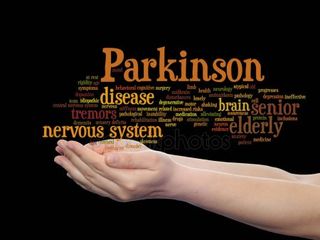Attention
A Scientist Grapples with Parkinson’s Disease
Balancing feelings and facts.
Posted December 8, 2019 Reviewed by Gary Drevitch

During early summer of 2019 I started to notice a slight shakiness in my left hand. Since I often get a shaky feeling if I am low on protein I gobbled down some leftover chicken and the shaking stopped. Ah! Just a lack of protein, I told myself. But then it happened again with a small tremor in my hand. When I would hold something in my left hand it would shake. During my semi-annual physical, my internist suggested that I get an MRI and a neurology consult; I got the MRI the next week and made an appointment at UCSD medical center, a top medical hospital (and where I got my Ph.D.), for some tests. The next open appointment wasn’t until August 12, but I wasn’t really worried, so I took it and pushed the symptoms to the back of my mind.
Had I been more astute I might have noticed some other subtler body issues but quite honestly, I was clueless. Others were not. For example, my wife kept telling me that I was talking too softly for her to hear me but I didn’t believe her and even suggested she get her hearing tested. My sense of smell had all but disappeared several years ago which sometimes was a blessing. When the dog farted my wife would say, “Ugh, that smells awful!” Smirking, I would say, “Sorry, I can’t smell that.” I used to joke about the benefits of my lack of sense of smell. At least my taste buds were still working (which is good, because I am the cook in the house). Sometimes I had trouble remembering names of famous people, movies and even acquaintances, but then everyone my age (turning 70 in March 2020) has some memory gaps and I could still teach, give speeches, do my research on the impact of technology and do the media interviews that I always enjoyed. When I couldn’t remember an author of a study that I was presenting in class I sloughed it off. I didn’t notice that my typing speed had slowed considerably as I kept making mistakes that I had to correct. Weird, I thought, but maybe I was just getting old and slowing down a bit. After all, I had excelled in my junior high school typing class and had written seven books and dozens of journal articles as well as writing blog posts for Psychology Today since 2010. Just a product of age, I told myself. Also, seemingly unrelated to anything, I noticed that when I brushed my teeth my left arm would be folded stiffly across my chest. I thought that this was weird but chalked it up to yet more issues of aging. Basically, I was clueless as I shrugged off the bizarre, seemingly unrelated symptoms. “Getting older sucks” I would say.
The neurologist put me through a bunch of seemingly odd tests. Although I can’t remember all of what she did (a bit of retrograde amnesia, I suppose, due to shock), I do remember that she had me walk down the hallway, follow her fingers with my pointer fingers of both hands and a few more seemingly odd tests. Finally, she looked at me and said, “You have Parkinson’s Disease.” I said, “Are you sure? Is my MRI conclusive? Are there more tests I should take to confirm this?” “No," she said softly. "You most assuredly have Parkinson’s Disease.”
When I told my wife, after the initial shock, she insisted that I needed to get a second opinion. I called the UCSD med center but the next appointment was months away. My wife called a friend with connections and she got me in to see another neurologist on August 22, a date that I will never forget. In the meantime, my wife, some friends, and my kids evidently started scouring the web for signs and symptoms of PD and started to watch me and my behavior. I shrugged it off as a clear mistake and didn’t even want to know about PD at all. I avoided searching for information and went on my merry way assured that the first doctor jumped the gun and I really didn’t have PD.
The second neurologist did even more weird tests of balance and movement and walking and then gave me the Mini Mental Status Exam where she asked me a few questions and told me three unrelated nouns, asked me to remember them, and then asked me all sorts of other questions. I had taken this test before as part of a research project that I volunteered to do on aging and memory and had even given the test once or twice in a cognitive psychology course that I taught years ago. I was confident that I would ace the MMSE! Finally, she asked me to name the three objects and after the first two I drew a blank. She even gave me a hint that it was a type of money but I couldn’t remember it no matter how hard I scanned my brain. I was stunned and now was not surprised when she told me that I had Parkinson’s Disease. She gave me a prescription for L-Dopa and ordered a DaTscan where they injected a radioactive isotope that tracks the number of dopamine receptors in the brain. At a follow-up appointment, she showed me a typical scan result that looked like two red/orange left and right commas facing each other. My scan showed only the circles of the commas and was totally missing the tails. Yep, now I was convinced that I had Parkinson’s Disease.
Since we were going on a long-planned vacation to Sicily and the south of Italy I waited to take the L-Dopa until we returned, as a common side effect of L-Dopa is nausea and I did not want to be driving on the Amalfi Coast feeling nauseous. Upon my return home I started the medication and after a few weeks, when it was not working at alleviating my symptoms, the doctor doubled my dosage. I still have lots of symptoms and I suspect that when I see the neurologist in a few weeks she may up my meds even more.
So, I have been in a dilemma since August 22. I am a scientist and as such, I work with “data” all the time. I study the impact of smartphones on teens and millennials and love developing and testing models that require data. Yet, this was not a study of PD. I had PD and I felt a tug to know what to expect. But on the other hand, why not just experience and document the symptoms without biasing my observations by reading about the disease? I compromised and read a little and watched a lot.
I have to admit that I have been shocked that I was so oblivious to what I now see as very clear symptomology. My left-hand tremor was worse than I had allowed myself to notice and cold weather exacerbated the tremors as my whole left side would shake if I shivered from the cold. I now notice that when I walk my left arm does not swing like my right arm and even if I try to swing it intentionally it goes back to lying rigidly by my side rather quickly. I noticed that I stumbled periodically for no reason and instead of chalking it up to being a klutz I paid more attention to the stumbles and they all emanated from my left foot and the left side of my body. My speech was softer (and I stopped blaming my wife’s hearing) and oddly my voice would all of a sudden, for no reason, get hoarse for anywhere from a minute to up to 30 minutes. A doctor I met on the Italy trip informed me that she knew I had PD the first time she talked to me as my face lacked the emotional expressions that my words should have invoked.
Oddly I noticed that my handwriting, which has always been difficult for others to read but not for me (I got a “D” in handwriting in 4th grade and I don’t think it has improved since then), now was smaller, the letters and words more crammed together and most often I could not read it at all (this is called micrographia). I paid attention to my typing and discovered that all my errors (and there were many) emanated from my left hand. It was as though my left hand could not keep up with my right hand and with the commands to type from my brain. I still haven’t come to grips with that one although I suspect that I need a voice-to-text program to avoid typing. That would make me sad as I have used those types of programs in the past and much prefer thinking and writing through my hands. I am a visual person who doesn’t even like audiobooks but prefers to read physical books from my local library. I also noticed that my movements are slowing down and are often awkward. A bit of reading told me that this is called Bradykinesia which is common in PD patients. It also told me to expect that it will get worse over time.
I wanted to blame someone in my family for passing down the PD genes but genetic causes of PD account for only about 15% of the cases and the current thinking is the cause remains unknown but is likely some combination of many factors including nature and nurture. Scientists just don’t know why some people get PD. But I watch Michael J. Fox and Alan Alda on TV and remember Kate Hepburn and Mohammed Ali and can see the direction this is going to take.
What can I expect? What scientific data should I be collecting or observing? First and foremost, there is no cure and the symptoms WILL get worse over time. The drugs help somewhat but the benefits often stop working after a few years. Other drugs are available and still more are being developed over time. I thank Michael J. Fox and his foundation for funding important research on PD. Second, I expect that the tremors and the body rigidity will get worse over time. I have read that at some point I will be unable to drive. I live in San Diego and I drive everywhere including the 100-mile trek to my campus at least one day a week to work in my lab with my student researchers. Third, walking may become problematic as PD creates a “festinating gate” where I will walk more slowly and my strides will get shorter and my walking will become erratic. Fourth, I can expect, based on averages, of course, to live another 10 to 20 years although people keep telling me that they know someone who has had PD for more than 20 years and they are just fine. (I find those comments very unhelpful as it appears to negate the seriousness of the disease and my reaction to my PD.) These statistics are just averages and I know that averages don’t take into consideration variability. Fifth, I can expect my cognitive processes to become compromised as my executive functions are slowed, my processing speed drops, my recall becomes spottier and my memory suffers.
Finally, from the feelings side of my brain it scares the heck out of me that many PD patients (far more than half, by the research I have read) develop dementia. The common estimate according to the literature that I read is that 50% to 80% of those with PD eventually experience dementia and the average time from the onset of PD to signs of dementia is 10 years. Now, I know that is an “average” but I have always counted on my brain. It appears that sometime in the future I may not be able to do so. I have known people with dementia and I am truly scared. I always claimed that I had longevity in my genes as my dad lived to 98 and was pretty much all there except for the last couple of years. My mom is 92 and appears to have all of her faculties although she does tend to repeat stories.
I still remain a scientist and a teacher so I pay close attention to my symptoms and I demonstrate PD symptoms to anyone who wants to watch by having them move their finger from location to location and first touching it with my right index finger with no tremor and then with my left index finger that shakes like crazy. I find it very odd and somewhat splitting to both be feeling my symptoms and being scared as hell and showing others the symptoms as a dispassionate science teacher.
On the one hand, I muse that I have had a great life with four great kids and an ever-burgeoning set of grandkids, a wonderful wife, and a successful career. I have traveled all over the world giving keynote speeches. I have been on 60 Minutes and The Daily Show. (My only regret is that I may never get to go on The Howard Stern Show, which I have listened to regularly for decades and is one of my not-so-guilty pleasures.) I have been acknowledged as an expert in my field and won every possible campus award. I am still doing research and will be teaching my last class in spring 2020, one that I teach to 400-plus students and dearly love the challenge of informing and entertaining.
On the other hand, in my dark times, I am scared to death to lose my mental acuity, my mobility, and eventually my mind and my life. But I still remain a scientist and will continue to observe and learn. With any luck I will be one of those who live with PD for many years with manageable symptoms. In my lighter days that is my vision of the future. I have good genes (if that helps) and will be doing what I can to increase my health and longevity. My 2020 New Year’s resolution will be to take advantage of all the ways that I might do that including exercising more, eating a different diet, taking some supplements that show promise and paying attention to the scientific research that continues to demonstrate new drugs and new treatments. My Google Alert is now set to “Parkinson’s Disease research” and I will use my mental faculties to continue to learn all about the ongoing science. Strangely, paying attention to the science is somewhat comforting as I have always believed in science. I will remain hopeful that science will find a cure or at least better ways to stay healthy and fight the disease.




